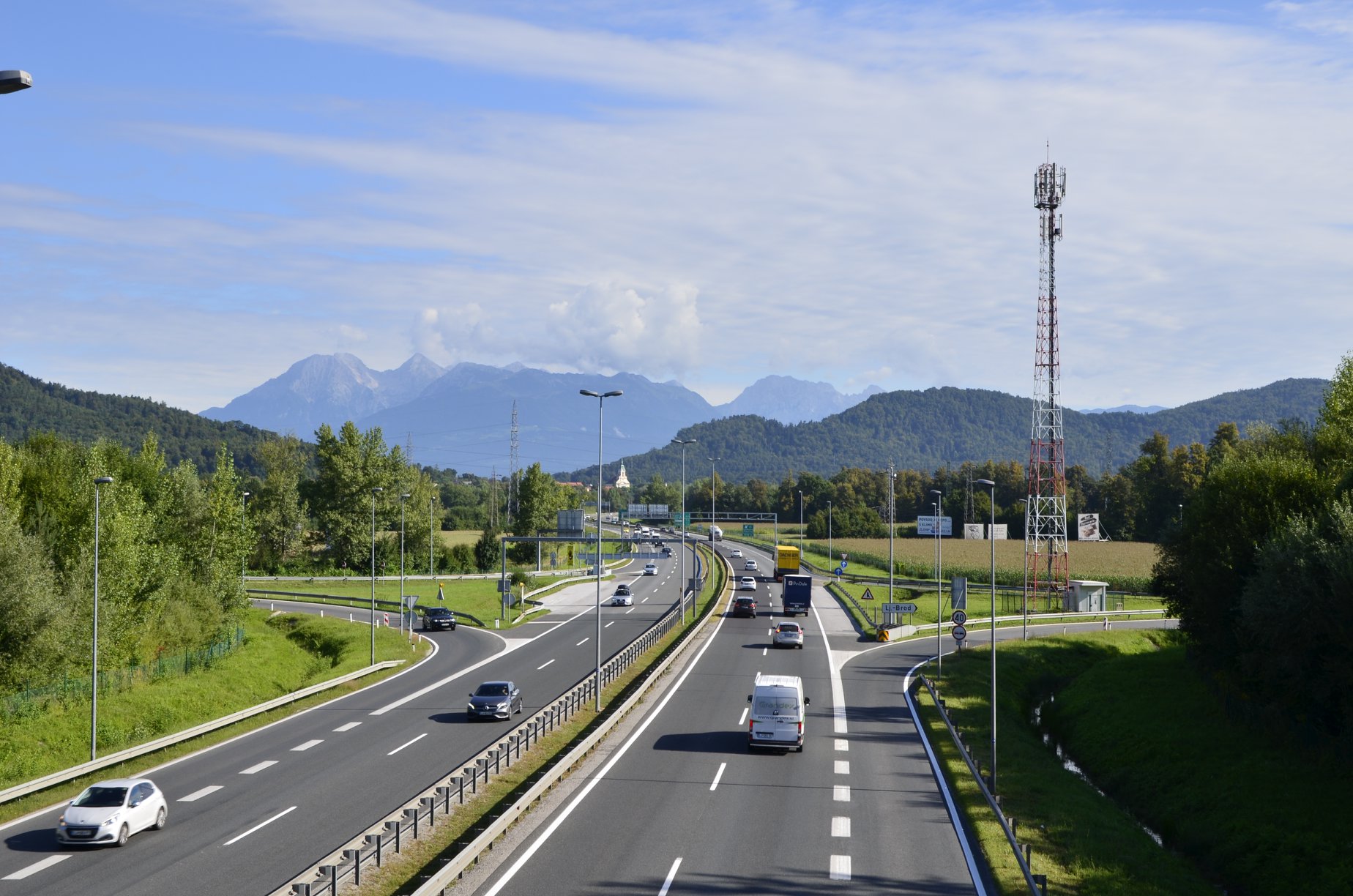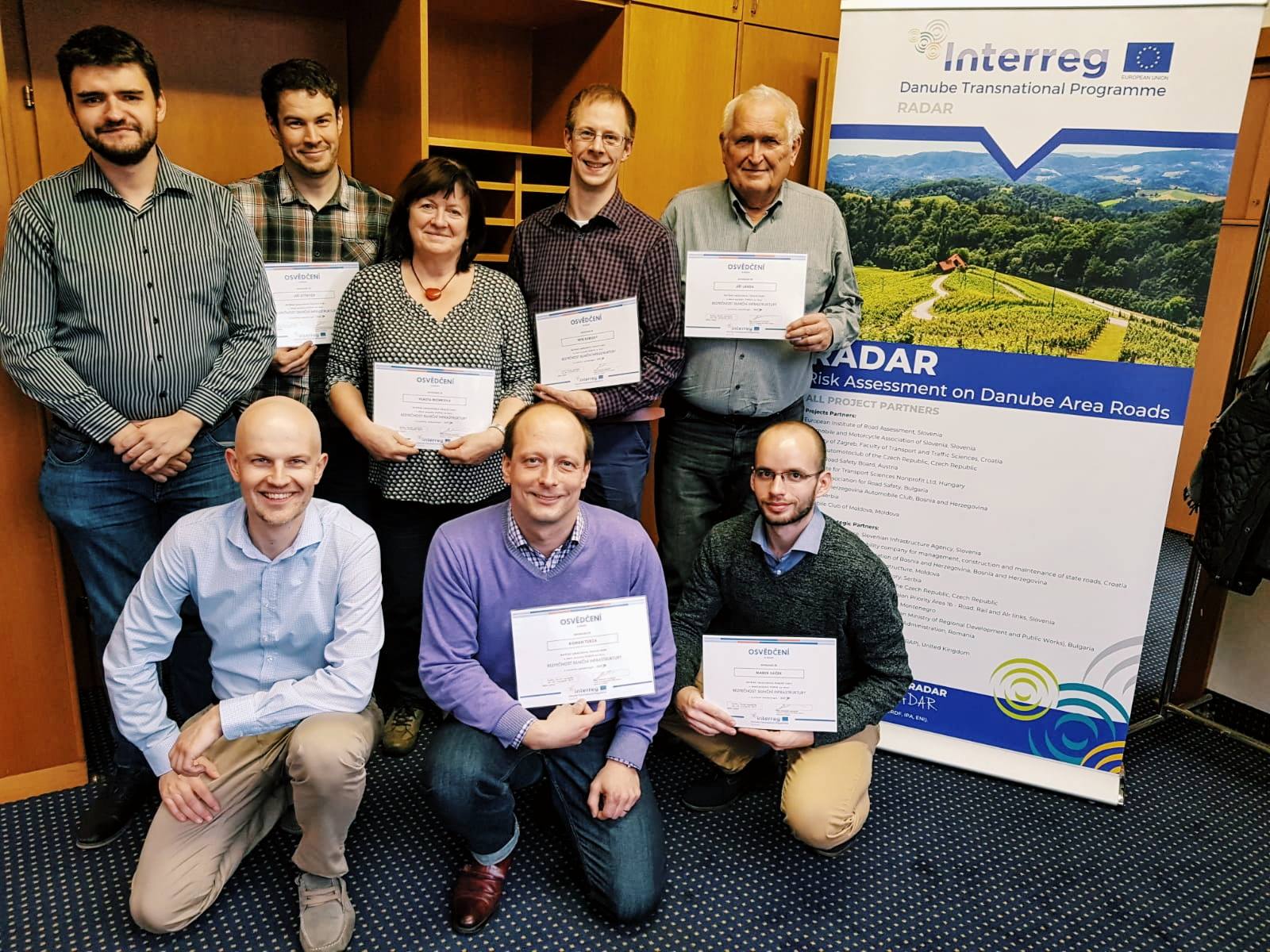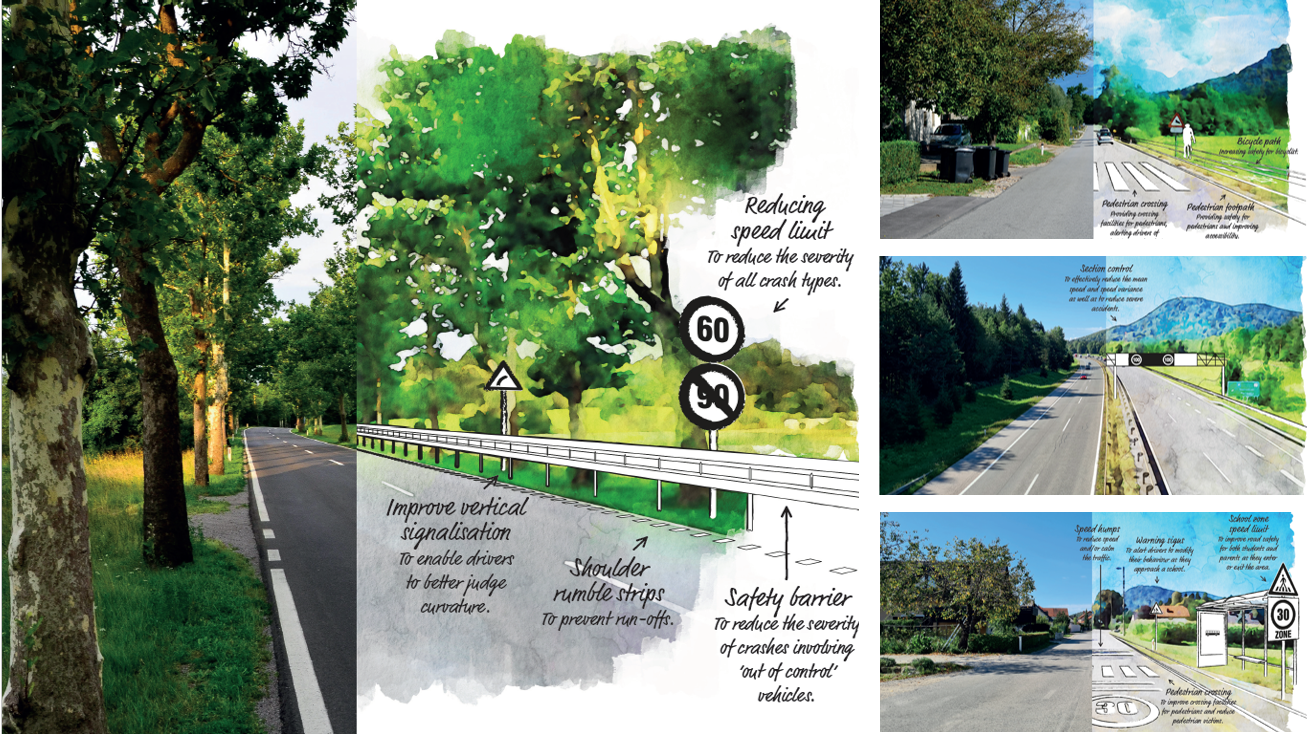RADAR - Striving for 5-star road infrastructure for all road users
10-08-2021
Death rates from road accidents in many countries in Danube area are higher than the EU average. 3,200 people died in eight Danube area countries throughout 2019 alone, a similar number in 2018 and 2017. By identifying risk on the road network and enhancing transnational cooperation in the sector, RADAR project is helping relevant organisations to change it.
May 18, 2021
 Image: RADAR
Image: RADAR
Roads knit people, communities, and markets together. They are the lifeblood of cities and regions. More so than any other mode, roads remain the predominant and universal transport network – but they are also the deadliest. Many countries lack professional capacity and approaches to the problem vary. On one hand, there are highly developed and highly traffic-laden road systems, and on the other hand, there are countries that are still developing their road network. Addressing the challenge of road safety management in the Danube area, a consortium of 19 partners from 13 countries across Europe joined their forces within Risk Assessment on Danube Area Roads (RADAR) transnational cooperation project.
“History teaches us that if we lose focus on the road safety due to the things that suddenly become more important than our lives, very soon the consequences become obvious. It is because of this reason we must not stop investing in safer roads. Every life is important, every life count, and we already have the knowledge and the tools to save lives and reduce trauma on our roads.”
Marko Ševrović, Lead Partner of RADAR, European Institute of Road Assessment - EuroRAP (EIRA)
340 Road Safety Experts Trained in Cost-Effective Countermeasures
By using the most comprehensive methodology – star-rating methodology (EuroRAP) – that covers most of the new Road Infrastructure Safety Management Directive 2019/1936/EC (RISM) requirements, the project designed and implemented Road Infrastructure Safety Training Courses on how to perform road surveys and road safety analysis. The main theme of the 3-day training was safe road infrastructure and its added value in ensuring road safety. Since 2018, the courses have helped to raise the capacity in existing best practices of more than 340 technical employees of road safety organisations in eight countries.
Besides the training, RADAR addresses road safety at operational level as well. With a Danube Road Safety Expert Group (RSEG), an international group of road experts defines provisions for road safety for each country and the whole region. RADAR has also prepared infographics featuring cost-effective measures to reach the (three-or-better) stars quality of road infrastructure in four thematic areas, including for example road safety near schools or speed managament.
 Image: RADAR
Image: RADAR
What's next?
With the start of the UN Global Road Safety Week (May 17-23), RADAR joins forces with the road safety community across the globe calling for a 30km/h speed limit to become the default speed limit in cities, towns, and villages. After all, smart speed management infrastructure is one of the main thematic areas within the project. “Above all - by supporting and contributing to the Second UN Decade of Action for Road Safety, RADAR is also delivering the very first region-wide Danube Infrastructure Road Safety Improvement Strategy. To show that RADAR solutions actually work, pilot actions are currently being implemented and evaluated in all partnering countries corresponding to all thematic areas – including the (smart) speed management,” says Olivera Rozi, from the European Institute of Road Assessment.
The extension of the project approved by the Managing Authority/Joint Secretariat of the Danube Transnational Programme has also resulted in the inclusion of analysis, recommendations, and action plans related to post-COVID-19 pandemic in the Danube Infrastructure Road Safety Improvement Strategy, which will provide the guidelines on how to implement the amended Road Infrastructure Safety Management Directive 2019/1936/EC (RISM) in the Danube area. Once finished, it will be the first region-wide and most comprehensive document of its kind in Europe at this moment.
 Infographics developed by the project. Image: RADAR
Infographics developed by the project. Image: RADAR
